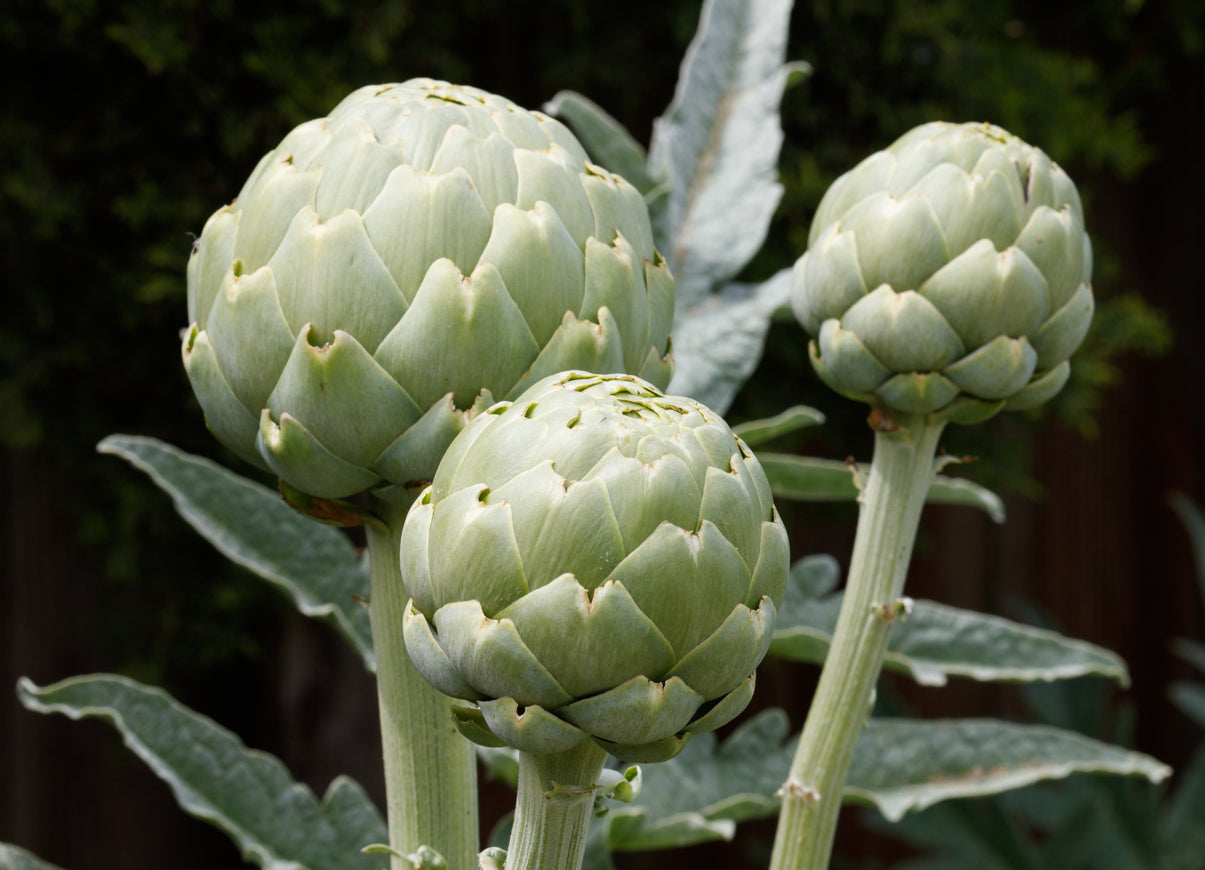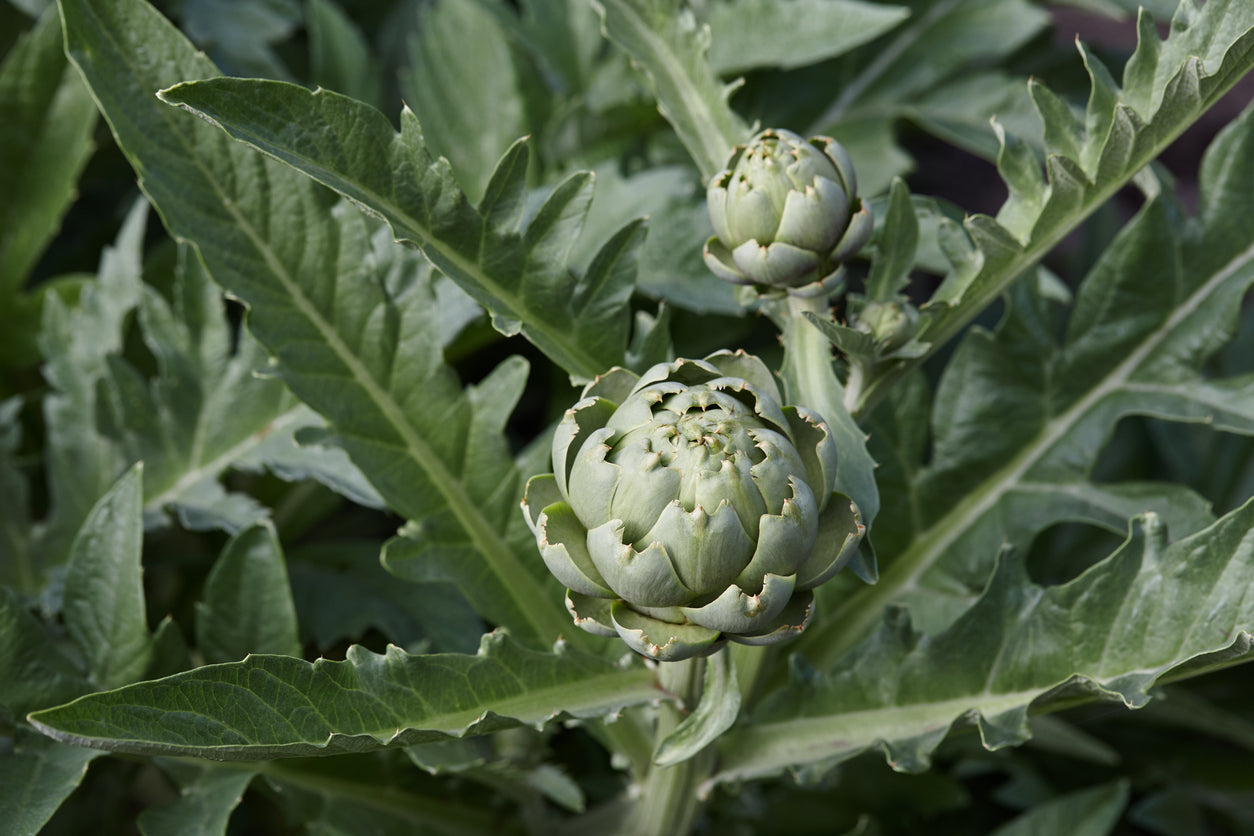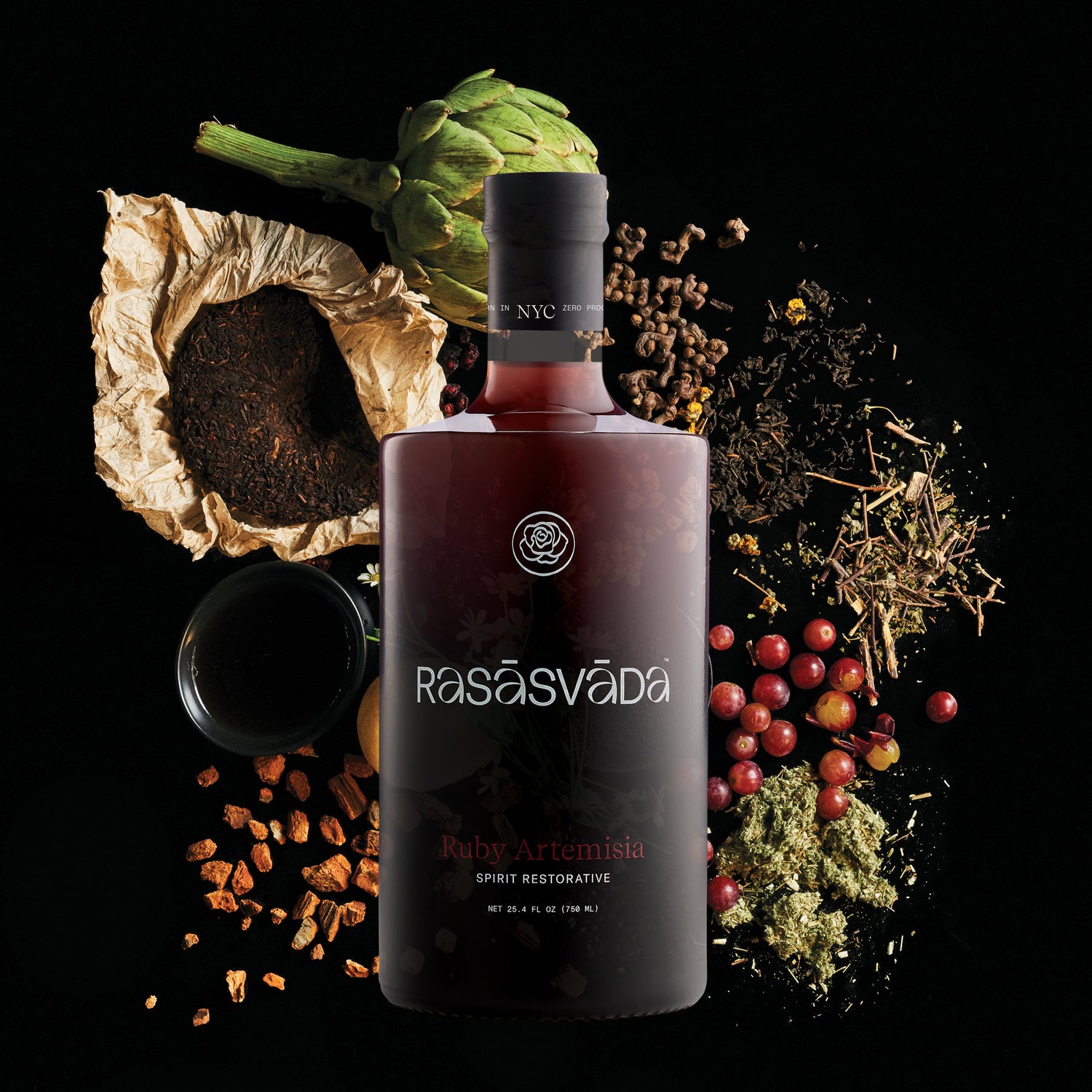Artichokes aren’t just tasty; they’ve garnered attention for centuries for their digestive and cholesterol-balancing support. While the artichoke heart takes center stage on dinner plates, the artichoke leaf—especially its bitter upper parts—deserves a spotlight in herbalism, thanks to its powerful therapeutic potency in tinctures, teas, and supplements.
Botanical Overview

Botanical Name: Cynara scolymus
Family: Asteraceae (sunflower family)
Common Names: Artichoke leaf, globe artichoke, green artichoke
Nutrient & Phytochemical Highlights: The leaves are rich in vitamin C, folate, magnesium, potassium, and potent antioxidants, and these concentrations are higher compared to the edible hearts
History of the Artichoke
The artichoke traces its roots to the Mediterranean, likely descending from the wild cardoon (Cynara cardunculus; a plant that looks very similar to the artichoke with more thistle) native to North Africa and southern Europe. Early cultivation spread across Tunisia, Libya, and Egypt before reaching Europe during the Middle Ages. Considered both a delicacy and a tonic, artichokes symbolized luxury, longevity, and vitality.
Through trade routes such as the Silk Road, the artichoke made its way into Traditional Chinese Medicine (TCM) in the mid-20th century as global herbalism expanded. In TCM, artichoke leaf is considered bitter and cooling, acting primarily on the liver, gallbladder, and digestive system. Practitioners use it to “clear heat,” “resolve dampness,” and support liver Qi—concepts that align closely with its known ability to stimulate bile production and aid digestion.
- Clear heat and resolve dampness: Eases bloating, heaviness, and sluggish digestion.
- Support liver Qi and bile flow: Helps liver detox and bile secretion, aligning with Western concepts of liver support.
- Digestive bitter tonic: Enhances enzyme and bile production, easing fat digestion and improving appetite.

Health Benefits of Artichoke Leaf
The artichoke leaf has been studied and used across Western and Eastern medicine for digestion, liver health, and overall wellness. In 2024, a study titled Functional and Therapeutic Potential of Cynara scolymus in Health Benefits concluded, “Various studies have demonstrated its potential as an anti-inflammatory, lipid-lowering, antimicrobial, and neuroprotective agent due to its phytochemical composition.”
1. Liver Health
Artichoke leaf extract offers hepatoprotective benefits, potentially safeguarding liver cells due to its antioxidant properties. Clinical data shows potential improvements in liver enzymes after supplementing with artichoke leaf extract, and support for non-alcoholic fatty liver disease (NAFLD).
2. Antioxidant Action & Digestion
Because it has a bitter compound, it’s been studied on stimulating bile production (supporting digestion and the liver health alike) and its antioxidant components in supporting cellular health by protecting cells from free radical damage.
3. Cholesterol & Cardiovascular Support
A randomized trial shows that artichoke leaf extract can be effective at reducing total cholesterol, LDL-C, and triglycerides in humans. Their conclusions were backed up in a later (2017) analysis in people with high blood pressure (hyperlipidemia) as well.
4. Immune Support & Anti-Inflammatory Action
Rich in flavonoids and antioxidants, artichoke leaf may reduce inflammation and support immunity.
5. Skin Health
Its detoxifying and inflammatory-balancing effects can support the skin barrier, lending itself to anti-aging and brightening properties, as well as supporting the integrity of blood vessels (an important component to boosting skin health).
6. Weight and Metabolism
Artichoke leaf help regulate blood sugar and support a healthy metabolism.
Artichoke Leaf in Rasāsvāda

Rasāsvāda sources artichoke leaf for its health benefits and carefully preserves its bitter potency. We’ve prioritized longevity, skin health, and gut health in our restorative herbal blend, Ruby Artemisia, where artichoke leaf is one of the foundational ingredients.
Flavor Profile: Gently bitter and herbaceous—adds complexity and function to Ruby Artemisia, which is bright, tart, and slightly sweet.
Sourced from: Peru
Key Takeaways
While the artichoke is a popular culinary element, the lesser known leaves provide emerging modern evidence for liver and digestive support, among multiple other ailments that are just now receiving attention.
FAQs
Disclaimer
Artichoke leaf is generally safe but may aggravate allergies to Asteraceae plants. Not advised during pregnancy or breastfeeding without medical consultation. These statements are not evaluated by the FDA and the product is not meant to diagnose, treat, or cure disease.
Sources
Bioactive Compounds from Artichoke and Application Potential - PMC
Cynara scolymus (artichoke) and its efficacy in management of obesity - ScienceDirect
[The] effect of artichoke on lipid profile: A review of possible mechanisms of action - ScienceDirect
Functional and Therapeutic Potential of Cynara scolymus in Health Benefits - PMC
Lipid-lowering activity of artichoke extracts: A systematic review and meta-analysis - PubMed
Pharmacological Studies of Artichoke Leaf Extract and Their Health Benefits | Request PDF
[Study on literature of artichoke and properties of traditional Chinese medicine] - PubMed
100% plants. 0% preservatives.






